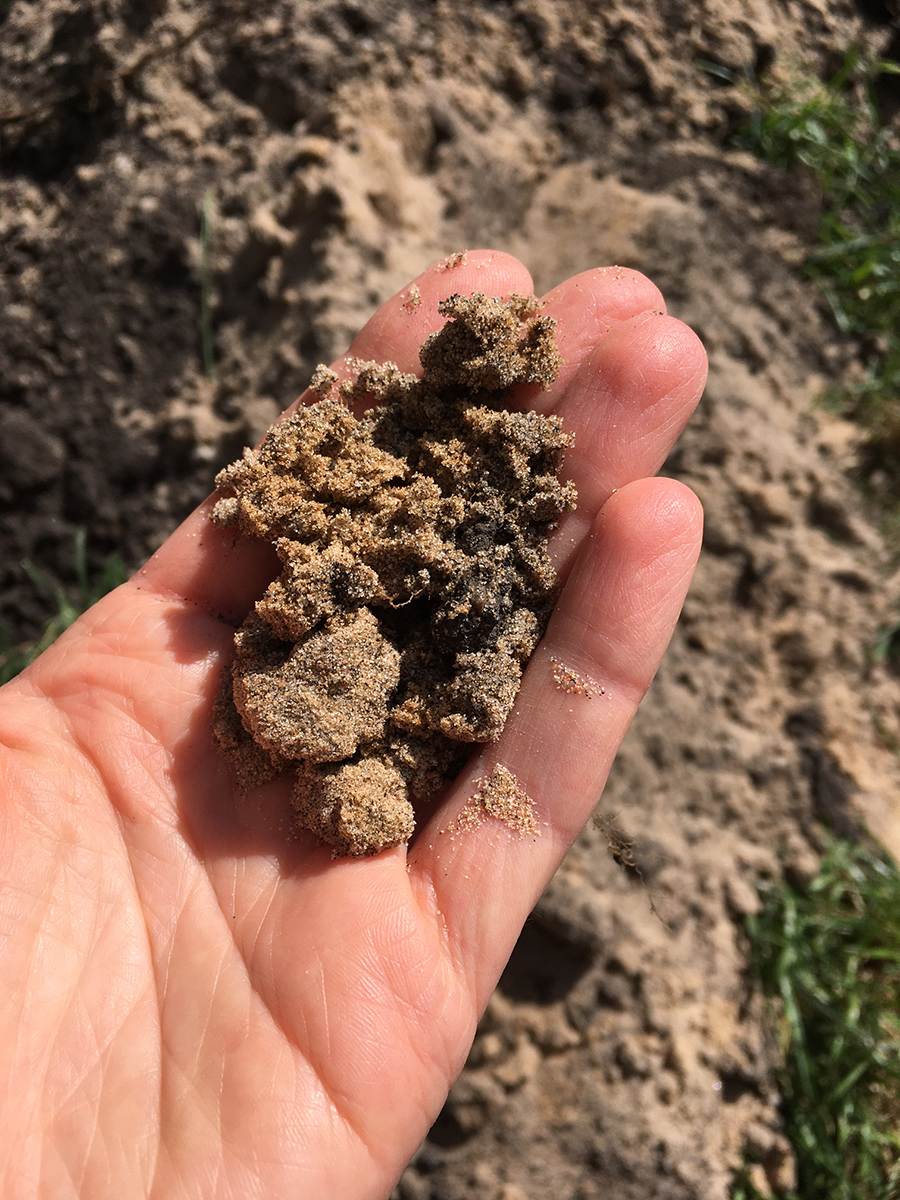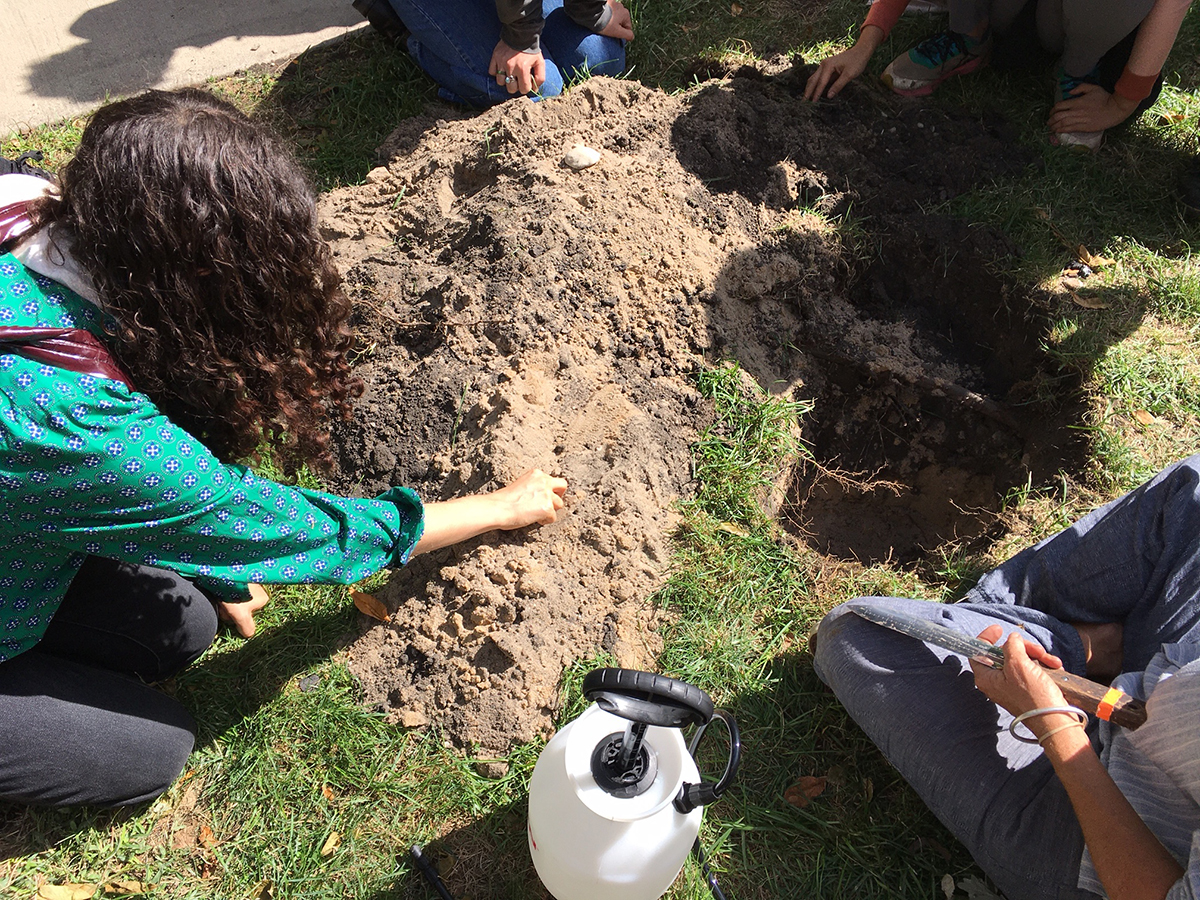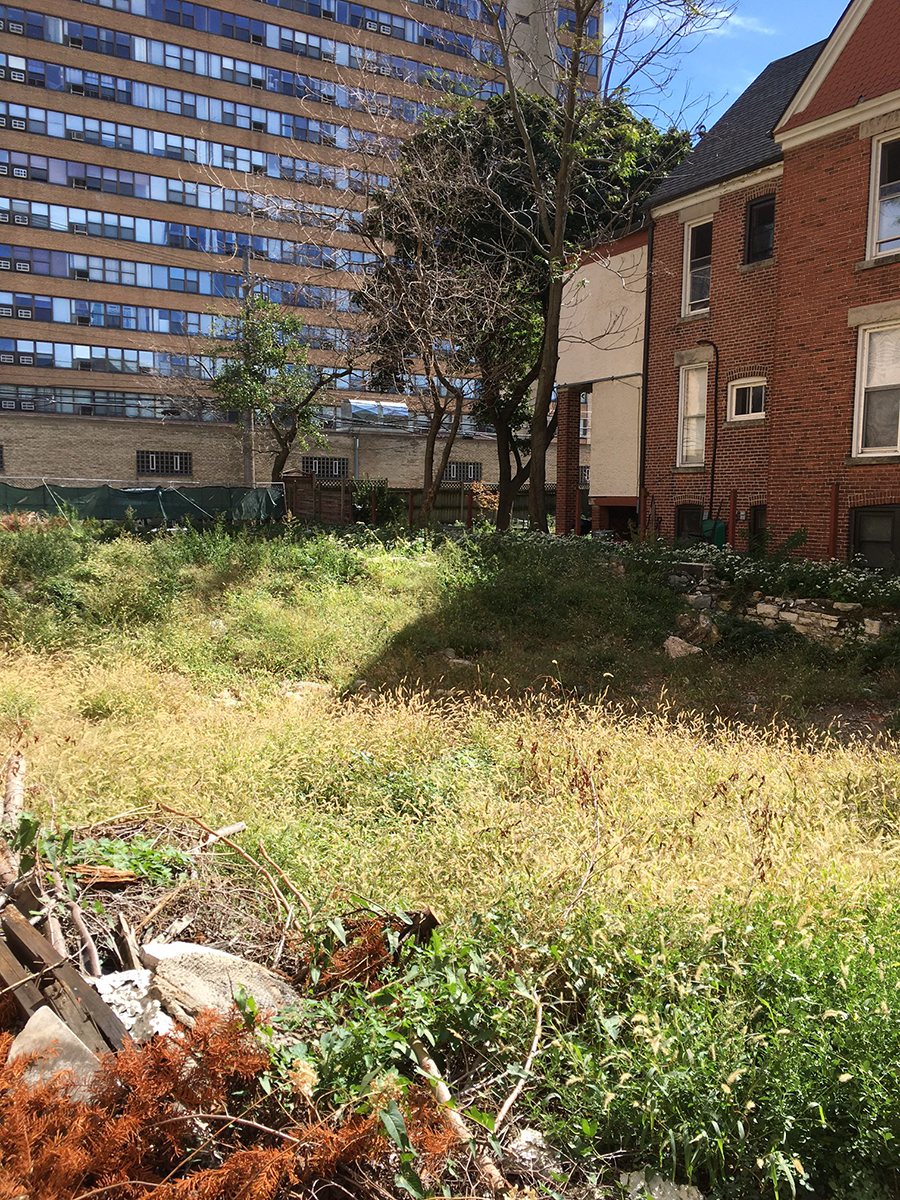
The Chicago listening event for Kanye (soon to be Ye) West’s studio album Donda began with a replica of the singer’s childhood home in the city, rebuilt and staged within Soldier Field stadium. The album is named for and dedicated to West’s mother. Such memorial leans into the uncanny when one considers that director Nia DaCosta’s addition to the Candyman horror franchise was released in theatres the next day. DaCosta’s film, set in the city’s gentrified Cabrini-Green housing projects, seems to centre on ideas of memory and legacy from a male perspective. However, it is the film’s women, one being the male protagonist’s mother, who emerge as the inheritors and guardians of intergenerational histories.
I could claim that this summer of celebrated mothers in big-budget Chicago art signals a broader shift within the city’s arts organisations during the COVID-19 pandemic. Think: renewed investment in caregiving, and an emergent understanding of the value of unseen labour. Such a statement holds certain truths but also merits caution, as it simplifies the complexities and ambiguities of what care can mean (ie caring while Black, caring while female, caring while queer, caring with a disability) under neoliberalism. However, it is this same complexity, this same unease, that makes the mothers of Donda and Candyman flashpoints within the summer’s arts landscape. As these two women, one lived and the other written, are inflamed with an excess of signifiers, it is necessary to witness how these same gestures of meaning and making are translated throughout the Chicago arts: from the community placemaking and South Side archives of in c/o: Black women, to Public Media Institute’s pandemic relief efforts. In sharp contrast to these community-based, grassroots DIY collectives, larger organisations vested in corporate interests – The Art Institute of Chicago and the city’s Museum of Contemporary Art – spent their pandemic laying off workers and pushing back against unionisation efforts. Such divisions, built upon race and class, are sadly commonplace under carceral capitalism. However, such demarcations are brought into sharp relief in Chicago through a history of redlining and divestment in the city’s South and West sides.

West received his honorary doctorate from the School of the Art Institute of Chicago in 2015, the same year I graduated from the institution’s Art History, Theory and Criticism master’s programme. I remember peering over from my balcony seat to see tenured faculty and deans taking pictures with West. The next day I’d begin my job at the call centre soliciting museum memberships and donations located in the basement of the Art Institute. Six years later and I can still tell you without hesitation the best bathrooms to cry in throughout the museum. Over this summer I have thought quite a bit about my time in that basement, while writing the inaugural essay for the Chicago Arts Census, the first comprehensive, cross-discipline data-collection effort in the city created by and with the art workers of Chicago. During those heat-laced writing sessions I was hit with a series of careening realisations: I’ve felt very alone and very sad for the majority of my working life as an art worker. My own mental spiral was in line with the census’s conclusions that new systems and organised resources were desperately needed to support artists and art workers struggling under the gig economy. More often than not, we find ourselves balancing multiple jobs, economic precarity and emotional burnout.

A few weeks after my work with the census, I participated in an event held in conjunction with the city’s Architecture Biennial, an ecological workshop titled, ‘Soil Safari’. The workshop consisted of a small group meeting in one of the city’s abandoned lots (currently numbering in the twenty-thousands) to study the city’s soil. I won’t end this story with a trite lesson on new life from a single sunny afternoon, as the truth, like connection and care in the Chicago arts, is impossibly intertwined with privilege, class and race: the vacant lot in which the workshop was held used to house various care facilities for LGBTQIA+ community members, until they were demolished by the city. These factors, along with the awkwardly human desire to both live with and without memory, are what combine to form a mathematics of compassion. Sadly, it’s a science routinely left on the shoulders of mothers and mother-figures, while others are seemingly absolved of its burdens.
In a 2018 interview with The Guardian, scholar Jacqueline Rose asserts that the unsolicited duty of all mothers ‘is to preserve the fiction that the world is a safe place… when if anybody knows that’s rubbish, it’s a mother’. That is the bind of mothering: it means being held aloft as the answer to life’s ills while simultaneously blamed for them. It’s the complexity, the knottiness of care after lockdown, what it means to continue to try to make, to write, to think about art. How can you show up to care for another, for an idea, for a purpose? Think back now to the mothers of Donda, of Candyman: it is the heaviest of burdens to be both everything and nothing. This is not a diagnosis, nor a hypothesis or proscription, but rather an urgent, ever-present question. How can that burden be lightened? How can you give of yourself to another, to the world?
Annette LePique is an arts writer, educator and archivist based in Chicago